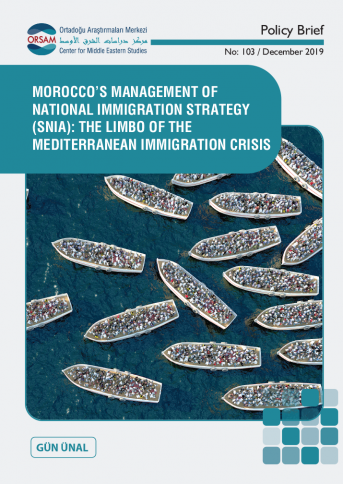
Morocco’s Management of National Immigration Strategy (SNIA): The Limbo of the Mediterranean Immigration Crisis
Morocco is both a transit country with geographic proximity to Europe and a destination for thousands of Sub-Saharan Africans. In recent years, immigrants in Morocco face severe social and economic systematic problems such as lack of access to medical care and education. Despite a promising national strategy to regulate immigration in compliance with international obligations, its National Strategy of Immigration and Asylum (SNIA), introduced in 2013, is insufficiently implemented. Morocco should revisit the setbacks to the implementation of its policy and inter-institutional coordination in a time of rekindling its relationships with African countries. Because, SNIA is key to address internal and international issues, alleviate human right abuses the migrants are subject to through systemic difficulties, and integrate Sub-Saharan immigrants and their descendants who comprise a portion of the population into the system and society. Internationally, regulation of immigration is a contribution to the migration crisis in the Mediterranean. Across the region, there is still need for a framework on humanitarian actions that would enhance the standards of international law in terms of asylum, refugee status, the principle of ‘nonrefoulement’, or forced deportation, and providing human rights protections for persons regardless of their legal status.



